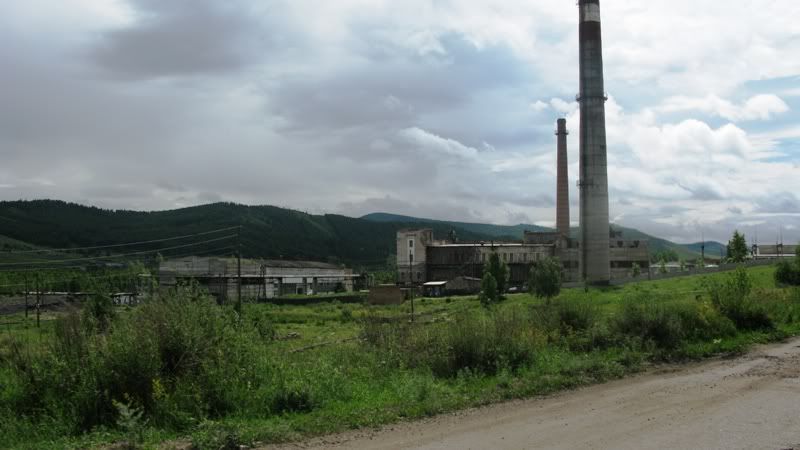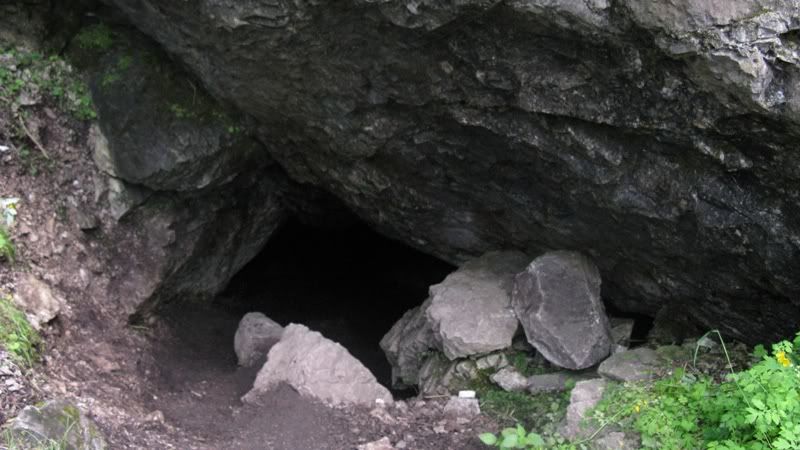|
Rap Music and Dope posted:I just visited Murmansk(Russia) a few weeks ago. God drat b, that place is cold as gently caress. I can't believe people have lived there for hundreds of years. Climate in Murmansk colder than climate in West Siberia. I would not want to live in Murmansk. Tartar people is indigenous peoples in Siberia. In Western Siberia was Tatar khanate until the arrival of people from the European Russia. Therefore Tartar people looking for jobs in industry, but they are not much. Chinese people are very few. Chinese people are many in the Far East.
|
|
|
|

|
| # ? Apr 27, 2024 00:37 |
|
I know your 27 so you may not remember much, but I always find it interesting to hear from Russians how things have changed in their area post soviet union, so can you share any information on how things were in Tomsk during Soviet times and how it is different now?
|
|
|
|
utjkju posted:My level of English on the scale adopted in Russia pre-intermediate. I really are not speak English, but I can read and I is learning to write so that people understood me. For this I need to think in English. It's difficult, but I try very hard.
|
|
|
|
Branis posted:I know your 27 so you may not remember much, but I always find it interesting to hear from Russians how things have changed in their area post soviet union, so can you share any information on how things were in Tomsk during Soviet times and how it is different now? I was born during Soviet times. Restructuring had began when I was 7 years old (I think that word "Restructuring" will be true for the translation of the Russian word "перестройка" which we call time after collapse of the Soviet Union. Time after 1991). In first grade I went to school in school uniform. Six months later, the school uniform abolished. It was strange, kids knew that you need to walk to school in school uniform. 1991-1998. It was a difficult time. People had not been paid. Therefore often people resigned from work. Factories closed production. At this time, was the beginning of development of the markets and commercial enterprises. At that time, were created the first commercial dentistry, commercial bakeries and other commercial production. Delayed salaries of employees who were paid salaries from the state budget. People organized strikes. 1998-2004 At this time, was the beginning of stabilization of the economic situation in the country. In 2000 - 2004 were restored buildings that were demolished during the Soviet Union. It is a fortress on the hill of the Resurrection. Cathedral near the Lenin Square. Сhapel on Lenin Square. Now the chapel and a statue of Lenin are located near. At this time, created the first commercial clinics and commercial schools. 2004-2014 In city built new arrondissements . But many Factories of Siberia are neglect.   But the arrondissement, which neglect factories, develop other economic potential. utjkju fucked around with this message at 18:42 on Feb 4, 2014 |
|
|
|
Pilsner posted:Reading and forcing yourself to write on forums is a pretty good way to learn; that's my experience with German at least. Thank you for your words of support. I find it difficult to understand how the British make their offers. Grammar textbooks do not help me. In the Russian language for one subject, you can use a lot of words that will denote only the subject. In English, one word can have multiple meanings. The British, who work in Russia and with whom we communicate, they say that it is clear what we are trying to say, but it's far from the English language. utjkju fucked around with this message at 02:16 on Feb 5, 2014 |
|
|
|
utjkju posted:I find it difficult to understand how the British make their offers. Grammar textbooks do not help me. In the Russian language for one subject, you can use a lot of words that will denote only the subject. In English, one word can have multiple meanings. English speakers also think this is funny. Sometimes we say things unintentionally (without intent) that could be heard more than one way. It can be very embarrassing. We understand and all laugh about it.
|
|
|
|
I am probably going to be at a theatre festival in Beijing in September and what I would really like to do is take a more portable version of my live music setup and a small group of musicians (some of whom will speak Russian and Chinese) and go all the way west through China and then across Russia, doing small gigs in small towns the whole way across, all the way to Romania to do a final gig. What are my chances of survival?
|
|
|
|
ifuckedjesus posted:English speakers also think this is funny. Sometimes we say things unintentionally (without intent) that could be heard more than one way. It can be very embarrassing. We understand and all laugh about it. It is very interesting. In 1956 Academy of Sciences of the USSR, Ministry of the higher education of the USSR and Ministry of Public Education of RSFSR formulated and consolidated rules orthography and punctuation Of Russian language. May be English language has something analogous?
|
|
|
|
Earwicker posted:I am probably going to be at a theatre festival in Beijing in September and what I would really like to do is take a more portable version of my live music setup and a small group of musicians (some of whom will speak Russian and Chinese) and go all the way west through China and then across Russia, doing small gigs in small towns the whole way across, all the way to Romania to do a final gig. What are my chances of survival? I think your chances of survival about 99,9 %. ) Every cities in our country and arrondissement have Web site on which publish primary information on сity. There you can know about address city administration, organization state, and other things. For example: http://www.admin.tomsk.ru/ http://astrgorod.ru/ Also many organization have Web site of two language: Russian language and English language. Yet still there are the Internet shops. Through internet may buy train ticket, plane ticket.
|
|
|
|
http://album.tomsk.ru/ There many photos of Tomsk
|
|
|
|
utjkju posted:May be English language has something analogous? I don't think such a thing would be possible. It is not just one nation speaking English, so one nation couldn't dictate the rules of it as the Soviet Union was able to. England, USA, Canada, South Africa, Australia, New Zealand, Singapore, Nigeria, Fiji and many other commonwealth nation's all use English as either their primary or secondary language. utjkju posted:In English, one word can have multiple meanings. ifuckedjesus posted:English speakers also think this is funny. Sometimes we say things unintentionally (without intent) that could be heard more than one way. It can be very embarrassing. We understand and all laugh about it. To give you an example, when I was in high school I sat in a chair that a girl just left. The chair was uncomfortably warm, so I said "She was hot". Now I meant that she must have be sweltering, but it could also mean "She is very attractive". My friends thought I was calling her attractive/sexy when I just meant she was hot. Lord Windy fucked around with this message at 09:36 on Feb 5, 2014 |
|
|
|
Earwicker posted:I am probably going to be at a theatre festival in Beijing in September and what I would really like to do is take a more portable version of my live music setup and a small group of musicians (some of whom will speak Russian and Chinese) and go all the way west through China and then across Russia, doing small gigs in small towns the whole way across, all the way to Romania to do a final gig. What are my chances of survival? Where in Romania are you coming?
|
|
|
|
Lord Windy posted:I don't think such a thing would be possible. It is not just one nation speaking English, so one nation couldn't dictate the rules of it as the Soviet Union was able to. How you teach children write and read at English language? ) Our children lean rules orthography and punctuation of Russian language. They (children) remember rules composition words, learn methods control word's orthography. For English language these methods use impossible.
|
|
|
|
I honestly can't remember how I was taught to read. I needed more help than most to begin with (I could not read or write beyond very simple words until age 8) but after I started reading it just came naturally. Once you know syllables and what sound each letter makes you can normally work it out when you're reading. After that it is just teaching how to spell words that don't make sense like knight (pronounced like as in night) Kids already know the rules of the language because they speak it. When you finish a sentence, you put a full stop. When you pause in the middle of a sentence it's a comma. The semi-colon (';' that one) was never really explained to me, I think it's used when you would normally have a conjunction. My mother has nice hair; she likes to brush it instead of My mother has nice hair and likes to brush it. I'm not a teacher however, any primary or secondary school teacher would be able to explain it rather well.
|
|
|
|
Coul you tell us anything about shamanism if that exists where you live? How did you find somethingawful? Thanks!
|
|
|
|
Lord Windy posted:I honestly can't remember how I was taught to read. I needed more help than most to begin with (I could not read or write beyond very simple words until age 8) but after I started reading it just came naturally. Once you know syllables and what sound each letter makes you can normally work it out when you're reading. After that it is just teaching how to spell words that don't make sense like knight (pronounced like as in night) this is surprising ) I write about how i had been learned Russian language. In Russian all children go to school when they are 7 years old. School children learn for 11 years. One of the subjects that the School children study - the Russian language. Pupils learn Russian language for 11 years. Lessons Russian language go 4 times a week. At Russian lessons to children explain as to apply rules our language (In 1956 Academy of Sciences of the USSR, Ministry of the higher education of the USSR and Ministry of Public Education of RSFSR formulated and consolidated rules orthography and punctuation Of Russian language.) Rules regulate use of commas (","), points ("." ), exclamation mark ("!" ), colons (":" ), dots ("..." ), semicolon (";" ), question mark ("?" ), a dash ("-"). In the Russian written language all signs of a punctuation can be used only strictly by rules. In Russian language one and too the word in different situations will be written differently. To it too children teach. But even after 11 years of training many people make mistakes in written language. Therefore Russian web site have an automatic verification of the text.
|
|
|
|
What are your favourite West Siberian dishes?
|
|
|
|
Lord Windy posted:I don't think such a thing would be possible. It is not just one nation speaking English, so one nation couldn't dictate the rules of it as the Soviet Union was able to. Well there's not just one nation speaking French or Spanish, but both languages have central organizations that regulate the rules of the language. English is actually in a rather small minority in not having one.
|
|
|
|
utjkju posted:How you teach children write and read at English language? ) Just like Russian, there are many different varieties of English. We could try to change the orthography so the spelling matches the sounds better, but which dialect would you use? If we spelled everything to match American English, it wouldn't be quite right for British English. Not to mention there are many different dialects within each country and around the world. Which one do you pick to be the standard? Which country gets to write the rules? It's true the spelling system can be frustrating. Even though it doesn't match the pronunciation very well, it's the same everywhere. I might have some difficulty understanding your spoken English, or a heavy Scottish dialect, etc. But we all share the same written language so there's no problem with communication there. I was taught Phonics (orthography, basically) and Reading as subjects, we learned which letter combinations make which sounds and practiced reading. There are many exceptions to English spelling rules, you have to learn the general pronunciation rules and then also memorize the exceptions.
|
|
|
|
Pellisworth posted:Not to mention there are many different dialects within each country and around the world. Which one do you pick to be the standard? Which country gets to write the rules? In Spanish for example there is an academy of the language in most Spanish speaking countries and they all convene together I think on a yearly basis to discuss and set these standards, issue dictionaries, and so on. Obviously dialects exist outside of the standards and all languages will evolve on their own anyway, but this kind of standardization at least for formal usage of language does exist and is fairly common outside of the English speaking world. http://en.wikipedia.org/wiki/List_of_language_regulators Earwicker fucked around with this message at 20:29 on Feb 5, 2014 |
|
|
|
Earwicker posted:In Spanish for example there is an academy of the language in most Spanish speaking countries and they all convene together I think on a yearly basis to discuss and set these standards, issue dictionaries, and so on. The way grade school textbooks are printed in the US makes it pretty irrelevant- there's not much difference across the US beyond accents.
|
|
|
|
enbot posted:The way grade school textbooks are printed in the US makes it pretty irrelevant- there's not much difference across the US beyond accents. That's true as far as spelling, it's not true as far as grammar and style in formal writing, there are differences between AP, MLA, Chicago etc resulting in different standards in different industries and academic areas. However I wasn't talking about the US but more internationally, there are more substantial differences between formal US English and UK English and there is no international regulating body across most English speaking languages the way there is with French or Spanish. Anyway this is a completely different subject though so maybe we should take it to some other thread!
|
|
|
|
So you're a geologist huh? What responsibilities do you have in this job, and why do you have British coworkers?
|
|
|
|
lllllllllllllllllll posted:Coul you tell us anything about shamanism if that exists where you live? Shamanism meet in Khakassia and in Mountain Altai. The Grot of Black demon is located In Khakassia. In this grot shamans carry out the ceremonies. On the cave roof dangle bracelets and necklaces of opal, garnet, quartz, clear quartz. This pretty pretties are donative for demon. They say that if to spend long time in the grot, it is possible to see the aura. But I didn't participate in shaman ceremonies. There is one more cave. It is Arkheyk's cave. There sacrifice ceremonies were carried out B.C. Caves is located about Malia Cia.   In Khakassia there are a lot of traces of ancient ceremonies of burial of the died people. In Mountain Altai is met holy places. These places were marked by signs. In these places is forbidden to swear, to leave garbage, to leave inscriptions on rocks, to break trees. If you break a ban, you will be pursued by failures. In these parts Altaians make the ceremonies of sacrifice - hang fabric strips on branches of trees.   Awful I didn't meet anything.
|
|
|
|
Earwicker posted:In Spanish for example there is an academy of the language in most Spanish speaking countries and they all convene together I think on a yearly basis to discuss and set these standards, issue dictionaries, and so on. Well consider me educated. I had no idea this sort of thing was possible over more than one country, or so prevalent.
|
|
|
|
Zsa Zsa Gabor posted:What are your favourite West Siberian dishes? First dish which I remember is Russian ravioli ( potstickers?). We yourself make this dish. But Russian ravioli is widespread on all Russia.
|
|
|
|
Pellisworth posted:Just like Russian, there are many different varieties of English. We could try to change the orthography so the spelling matches the sounds better, but which dialect would you use? If we spelled everything to match American English, it wouldn't be quite right for British English. Not to mention there are many different dialects within each country and around the world. Which one do you pick to be the standard? Which country gets to write the rules? There is only one variety of Russian on the record. For example, there is Altai dialect, but Altaians use Russian on the record. Though keep the Altai writing. And despite dialects for conversation over all country the same oral language is accepted. utjkju fucked around with this message at 06:24 on Feb 6, 2014 |
|
|
|
Squalid posted:So you're a geologist huh? What responsibilities do you have in this job, and why do you have British coworkers? I can not answer for these questions, because is forbidden to distribute office information. I wrote : "The British, who work in Russia and with whom we communicate". These British are not my coworkers.
|
|
|
|
Pellisworth posted:But we all share the same written language so there's no problem with communication there. Where wrote down rules of a uniform written language? Where it is possible to read about this written language?
|
|
|
|
In 1906, there was an American organization called the Simplified Spelling Board. It lasted for quite a while. The goal of this organization was to decide how English words should be spelled, so you could look at a word and know exactly how it should be spoken. For example, "through" would be spelled "thru", and "alphabet" would be spelled "alfabet". This organization was not successful, because literary organizations and academic people thought that this idea was for stupid people. This means it is more difficult for normal English-speaking people to read and write correctly. We have contests ("spelling bees") for knowing how to spell words from our own language correctly. Many people think English spelling should change, but no one has enough power to do it.
|
|
|
|
Pick posted:We have contests ("spelling bees") for knowing how to spell words from our own language correctly. If I recall correctly, the Japanese have similar competitions with their own obscure words. Don't worry so much about trying to learn a "unified" English, focus on one country's version or whatever materials you can get. The differences are small, just spelling (color or colour, for example) or the name for certain things (mom/mum, cart/buggy, bathroom/loo). Many authors have made careers making fun of English's problems, such as an early collection of works by Dr. Seuss titled The Tough Coughs as He Ploughs the Dough. It took me years to realize it was a joke on how many ways you can say "ough". Thank you for sharing so many pictures. Could you translate some of the rules on that blue sign?
|
|
|
|
English is hard to learn, because it isn't consistent. It's basically a Germanic language at heart, with lots of words borrowed, mostly from romance languages and Greek. As a consequence, we've borrowed rules from Greek, Latin/romance languages and Germanic languages, and we ended up with a really inconsistent mess. Some spelling reforms worked - for instance, America tends to drop a lot of...more elaborate spellings, like "manoeuvre", "programme", "foetus', "foetid", "encyclopaedia", "axe" etc - and turns them into "maneuver", "program", "fetus", "fetid", "encyclopedia", "ax" etc. It can be very confusing if you read a lot of internationally written works, like..books written in America, or websites written in America (which are the majority of websites), meaning that after a while..it's unclear what the accepted spelling of a word like programme is. In Australia, you often see it spelled both ways. Spelling reform sort of...worked half the time and didn't work the other half of the time. We have a political party called the "Labor" party, because when they were established, they named themselves using the American system - but the Australian spelling of labour is..well..labour. "Lazer" is possibly the stupidest - because someone in America thought it would follow the rules of American spelling - where words like "analyse", "realise" etc are spelled like "analyze", "realize" etc. "Laser" is an acronym, and trying to jam a z in there means that the acronym doesn't work. Hell, the letter "z" itself is pronounced "zee" in America, and "zed" in Australia and Britain. Hence, we pronounce "zebra" with a short e, and Americans pronounce it "zeebra." All in all, it's so astoundingly confusing that I have no idea how they could ever hope to standardise it. I just hope I didn't confuse you further.
|
|
|
|
TunaSpleen posted:If I recall correctly, the Japanese have similar competitions with their own obscure words. The especially protected territory of Altai Republic. Natural park "AK Chelushpa" Dear guests! We welcome your kindly wish lean holy Altai and have reliance in respect is fixed the rules of conduct on holy and the especially protected territories. Please: 1. Try not to leave garbage, not to leave marks on places of the stay 2. There is request take away urban ore from Chulishman's valley and to bring them to waste deposit. 3. You shouldn't make a fire, not organize camp in not allowable places. 4. On time visit at holy places do not try carry out the shaman's ceremonies yourself if you do not know ceremonies's rules. You shouldn't take sacrifice which was left for daemons. 5. You shouldn't step over the high part ( chief) of the healthful springlet. (Argana) 6. You shouldn't do one's doings ( ease oneself) at holy places. 7. You shouldn't wear beachwear at holy places. 8. You shouldn't clamor, make noise, make a row at holy places. 9. You shouldn't modify landscape. 10. You shouldn't leave inscriptions on rocks and trees. 11 .You shouldn't break trees. 12. You shouldn't break signs. If you observe rules that you show respect to daemons. And daemons love you. If you break a ban, you will be pursued by failures. This is a rule boomerang. You is located on the swell. This is holy places. You shouldn't do one's doings ( ease oneself) at this place. Friends refuse plastic bottles. Plastic bottles are toxic for the nature. Good luck!
|
|
|
|
Thanks to all who wrote posts about English. It is very interesting and necessary information. It helps me to understand English better.
|
|
|
|
Infamous Sphere posted:English is hard to learn, because it isn't consistent. True but at least we don't have gendered nouns and billions of verb tenses. From what I've heard from non-native speakers who've learned the language, English is hard to learn for formal usage but learning enough to be conversational is fairly easy compared to many other languages.
|
|
|
|
This thread is really enjoyable! Your english is quite good also.
|
|
|
|
Oh, I get it, if you break any rules in the holy site you'll anger the demons and they will haunt you. That sounds like a much better threat than "We'll fine you $200 for damages."
|
|
|
|
How often do you see bears? Are they big bears? What about moose or large deer-like animals?
|
|
|
|
utjkju posted:I was born during Soviet times. Restructuring had began when I was 7 years old (I think that word "Restructuring" will be true for the translation of the Russian word "перестройка" which we call time after collapse of the Soviet Union. We used the Russian word for that in English--"perestroika." "Perestroika" and "glasnost" were very big topics on American news when they started. utjkju posted:First dish which I remember is Russian ravioli ( potstickers?). We yourself make this dish. But Russian ravioli is widespread on all Russia. In the US and Canada, those are either perogi or vareniky, depending on whether your town had lots of immigrants from Poland or Ukraine. And they're delicious. What is the mood in Siberia about the Olympics? Are you excited, proud, happy?
|
|
|
|

|
| # ? Apr 27, 2024 00:37 |
|
Infamous Sphere posted:English is hard to learn, because it isn't consistent. It's basically a Germanic language at heart, with lots of words borrowed, mostly from romance languages and Greek. As a consequence, we've borrowed rules from Greek, Latin/romance languages and Germanic languages, and we ended up with a really inconsistent mess. While English spelling and orthography is problematic, the...diverse origins of modern English have led to the elimination of a number of features that make other European languages difficult to learn for outsiders: no grammatical gender, a vastly simplified case system, no complicated system of adjective declensions, etc.
|
|
|















